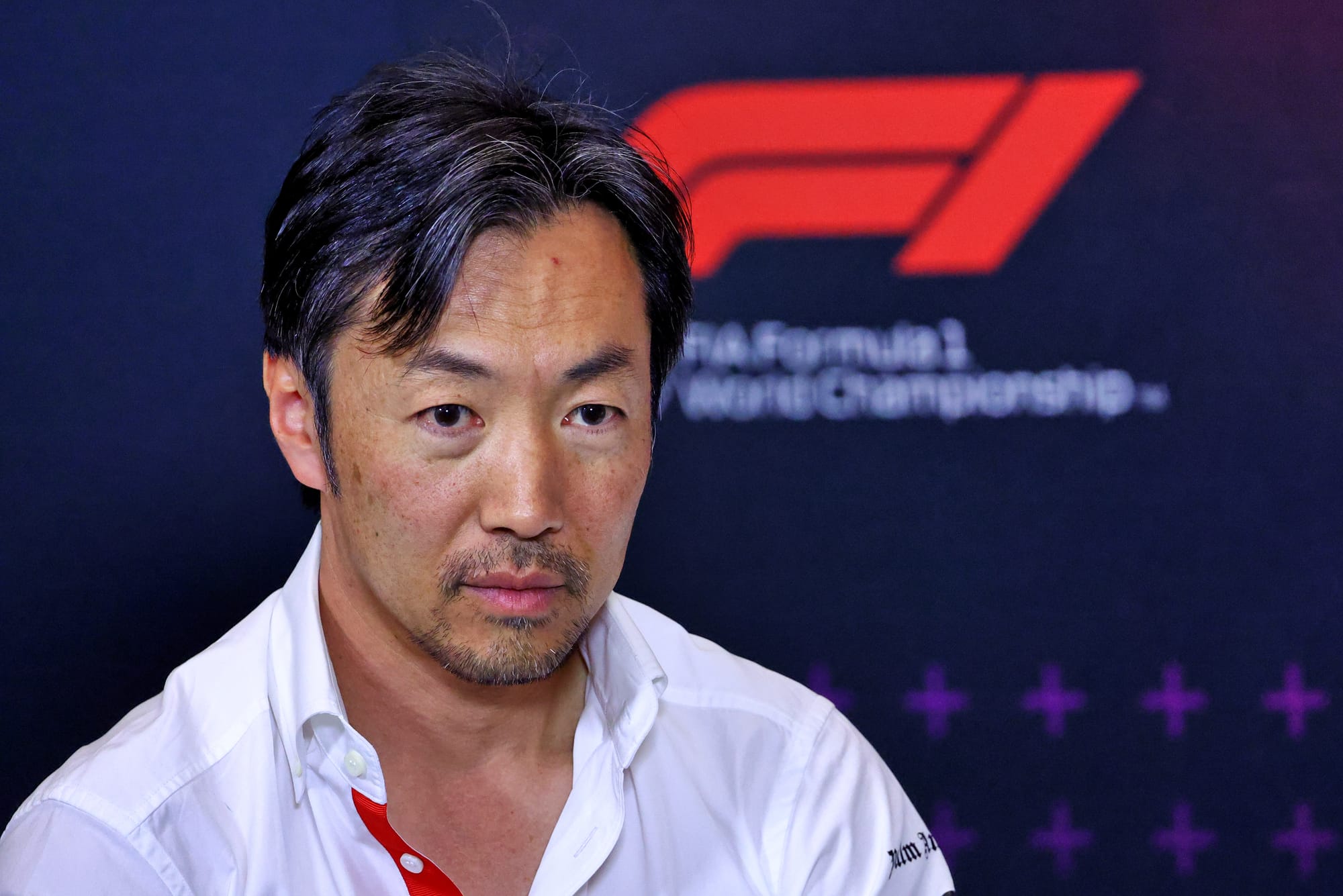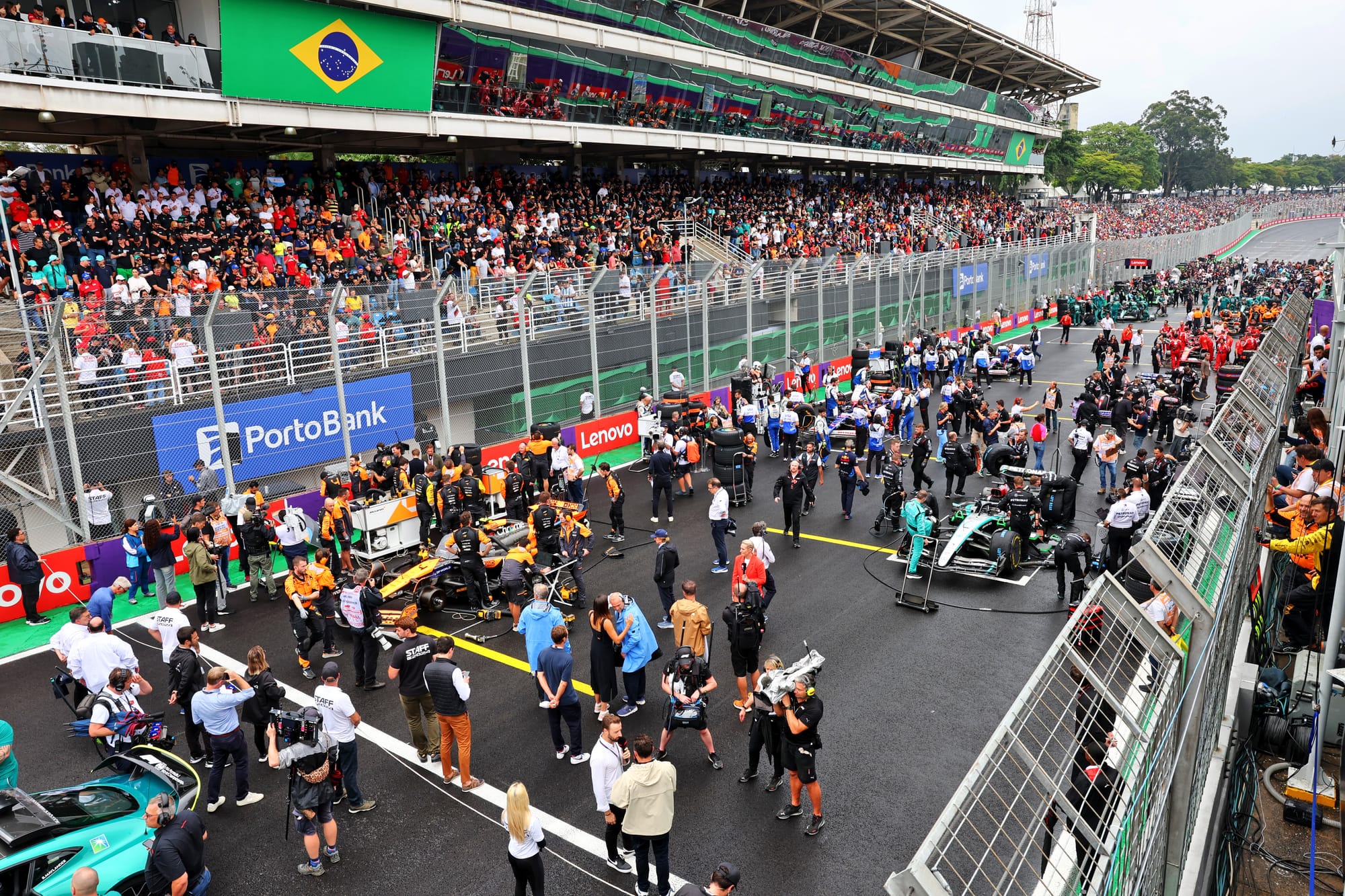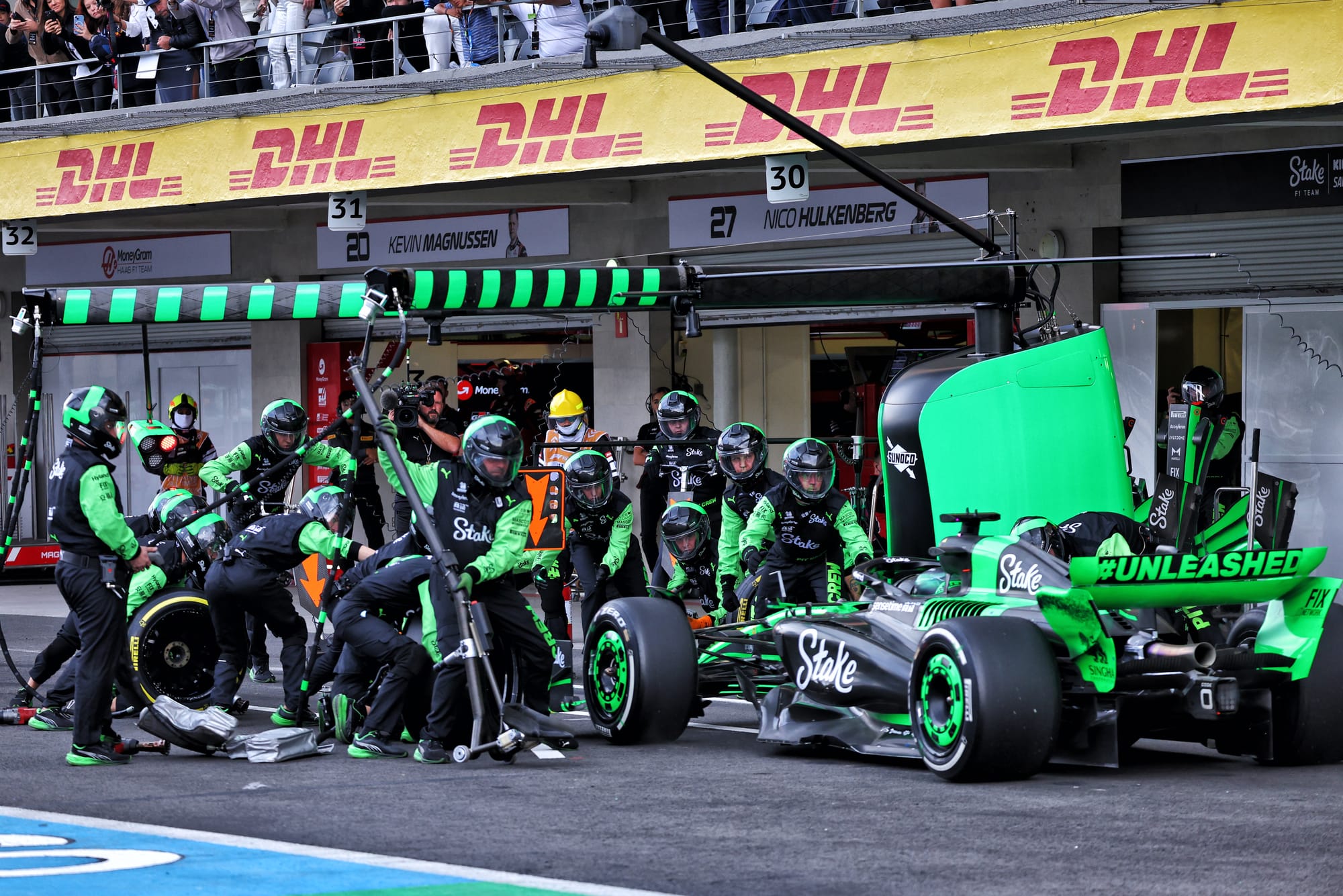

Audi’s future Formula 1 rivals are pushing back against a cost cap adjustment that will benefit it most when it enters F1 in 2026 in place of Sauber.
Audi is in the process of taking over Sauber’s F1 team, including its long-standing Swiss base in Hinwil. That makes it an anomaly among the other teams which all have their primary F1 base in the UK or Italy.
F1’s cost cap was already going to rise for every team ahead of Audi joining in 2026, an increase from $135 million to $215 million. That’s not as big a rise as it first seems when you account for inflation and a new set of regulations.
But Audi will likely benefit the most from an additional cost cap boost targeted at accounting for countries with higher wages. The change isn’t for Audi only but as Sauber is based in a country with higher average salaries than the UK and Italy, it will receive the biggest benefit.
The “consideration factor” in the FIA financial regulations will be calculated as the average annual wages of an F1 team divided by the weighted average annual wages of the country they’re based in, based on independent economic data.
The FIA believes this will account for the higher salaries in Switzerland and ensure a level playing field between teams.

The change was agreed earlier this year despite there being opposition from the other nine teams, something Haas team boss Ayao Komatsu vocalised when The Race asked him about the exemption on the eve of the Las Vegas Grand Prix weekend.
He says the details of the change “hasn’t been finalised, we’re still debating that” but made his position very clear.
“Why does a team based in Switzerland have an exemption? Everyone chooses where to set up their team,” Komatsu said.
“Between London and Oxford and the north of England price difference, where do you stop? Where do you draw the line? If you look at those things, you have to look at all the benefits.
“Also for people to live in Switzerland, the reasoning can be different. I remember a long time ago trying to hire someone from Sauber who loved skiing and loved mountains, so he didn't want to come to England.
“A lot of things come into the equation, I think it's very dangerous to look at one dimension and say 'OK, it's more expensive here’. You can just look at the price of beer or something, and then say ‘OK, it's more expensive therefore you should give the exemption’.
“You're free to set up anywhere you want.”

Komatsu compared it to the FIA’s clampdown on drivers driving too slowly in qualifying and how the minimum time solution regularly leads to breaches: “The more you go into detail, the more difficult to cover those, and it creates another problem.”
He doesn’t think it’s possible for the FIA to account for every single variable in the cost cap, so it’s unfair to make an exemption based on just one.
"I don't know if interesting is the right word but in the F1 Commission meeting, apart from Sauber, funnily enough, everyone is against it,” he continued.
“So I don't know why the FIA is just completely pushing for it. Again you have to say how about those guys in Italy in Ferrari and RB has some facility in Italy and also we have a half-Italian facility, half-UK facility, where do you stop?
“An engineer going from the UK to Italy, has certain big financial benefits in Italy, so are you compensating for that? Of course not. So where do you stop?
“Unless you look at every single dimension it's very difficult to make it completely fair. Can you look at every single dimension? I don't think so.
“So I think it's very dangerous to do that to be honest.”
When asked why it was being pushed through when 90% of the teams didn’t want it, Komatsu simply said “you said it no?”.
The FIA’s logic

The FIA sees things differently, as FIA single-seater director Nikolas Tombazis outlined in Austin earlier this year.
“Well first of all, I will say that in a democracy where there’s nine wolves and one sheep, I think you can see who will be on the table for the nine wolves,” Tombazis said.
“So therefore while we do want to have of course consensus and democracy and involvement, it is our responsibility to also try to be fair and we’ll have opportunities every five years or six years or so to make adjustments that are aiming for fairness where, maybe within the competition of Formula 1, it’s difficult to get the necessary levels of majorities amongst teams to support change.
“It became obvious to us that salaries in certain countries are much much higher and cost of living is much higher in some countries, I see it myself, I live in Geneva. When I go to the supermarket I think about it.
“We felt that for roughly the equal cost cap, a team based in a high-level cost country like Switzerland would end up having approximately 30% or even 40% fewer people working on the car which we felt was fundamentally unfair.

“So, we’ve decided to, this could either lead to us trying to take some actions from a regulatory point of view, or it would eventually mean that teams could not operate and a team like Sauber would have to basically close and move to another country which we don’t think is the right way for a world championship to operate.
“So that’s why there’s an adjustment in the financial regulations for ‘26, which we’ll basically adjust the salaries, the salary that gets considered in the cost cap, by some factors that get determined by OECD [Organisation for Economic Co-operation and Development] data - that’s not FIA data to be clear; that’s data that’s available to the world.
Now, may I just add that as we have financial regulations already in place, and we get data from teams, we know that this OECD data is very consistent with the salary differences that exist even within the Formula 1 context and amongst the engineers and teams.
“So it’s not just OECD data. We have overriding and compelling evidence also from what teams are paying their aerodynamicists or their designers or their shop floor workers or anything and all of that points to the same direction.
“Therefore, I think this regulation is completely fair. I will also say that we do plan to enhance it a bit more; we do plan to give it a bit more transparency as well so that teams that are maybe worried that something, I don't know, underhand, is happening, would be convinced.
“I think if you looked at the data, I don’t think anyone would have doubt about the fairness of this regulation.”
